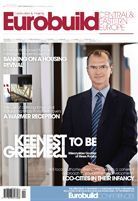In July it was reported by the Prague Research Forum that the only office building completed in Prague in Q2 was Tetris by an anonymous Russian investor. ‘Anonymous’ seems to be a word that is often found in the same sentence as ‘Russian investor’, and this perhaps explains the wariness of Central European companies and institutions when it comes to getting involved with them. And “Who are they?” and “Where does their money come from?” are questions that have taken on an added urgency since the debacle of the credit crunch and the subsequent tightening of EU financial regulations. In other Russian-related news, at the end of June Platinum Properties Group (PPG) debuted on the main trading floor of the Warsaw Stock Exchange. The majority shareholder of the Warsaw-based developer, with a 59.17 pct stake, is Righteight Holdings Limited, an SPV company fully-owned by MB Capital Partners, which is itself controlled by Russian investors Igor Babaev and Sergey Mikhailov. Gusta





























































